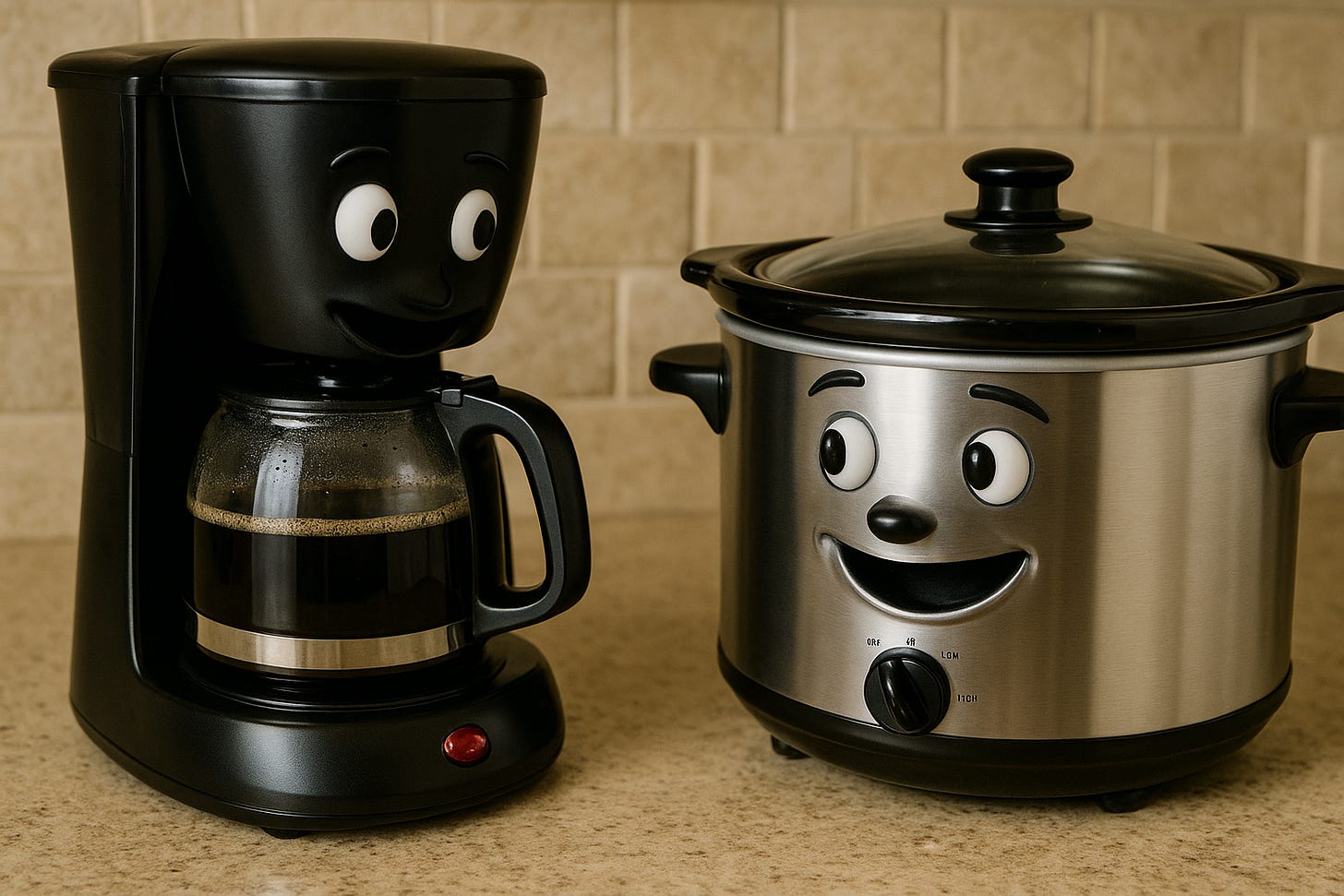My Coffeemaker Is Talking To Me
Adventures on the Internet of Things
Image generated by ChatGPT (OpenAI) using the DALL·E model.
One of the many blessings—and occasional curses—of being a tech blogger for years was the parade of free stuff. The blessings came when someone sent me a genuinely impressive piece of tech magic in hopes of a glowing review. The curses arrived each fall, when box after box of new iPhone cases would show up like migrating geese, each manufacturer convinced their latest plastic rectangle was the holy grail of smartphone protection.
At some point in the early 2010s, a few of those companies started branching out into more… aromatic territory. Belkin, for example, teamed up with kitchen appliance makers to drag home cooking into the 21st century. Around 2011, they launched a smart home division called Wemo, based on a simple premise: What if everything in your house could connect to the internet and boss you around?
To be fair, some of their products were early pioneers in what we now call the Internet of Things. They released one of the first remotely controlled smart plugs—perfect for turning on a lamp in your living room in Colorado while sipping a drink on a beach in Australia. These days, you can buy smart plugs just about anywhere, all proudly declaring their compatibility with Alexa, Google Nest, and occasionally Siri (when she’s in the mood to cooperate). But more on the turf wars of virtual assistants in a future post. It does Matter…
Anyway, Wemo eventually partnered with Newell Brands to bring smart technology to the kitchen. Never heard of Newell? Maybe you’ve heard of Mr. Coffee or Crock Pot, some of their “Brands”. Now we’re cooking. Literally.
As a reviewer, I ended up testing a Wemo-branded Mr. Coffee coffeemaker and a smart Crock Pot slow cooker. I still use the Crock Pot today—though it continues to blink its lonely little Wi-Fi light, patiently hoping I’ll remember to connect it and reduce the heat on a simmering pot of chili while I’m off painting wildflowers or ice climbing in Ouray (which is obviously a thing I do all the time.)
To borrow the wise words of Jeff Goldblum’s character in Jurassic Park: “Your engineers were so preoccupied with whether they could, they didn’t stop to think if they should.” Do I really need a coffeemaker that connects to the internet? One that I can control from my phone while I’m still in bed?
Unless it can fetch the beans, grind them, insert a filter, fill the reservoir, sense my circadian rhythm, and deliver the finished cup to my bedside… I still have to do 95% of the work. The only “smart” thing about it is how quickly it makes me question my life choices before caffeine.
Same deal with the Crock Pot. Sure, it’s cooking all day. That’s its thing. But I still have to physically prep the meal and dump it in. Couldn’t it just have a good old-fashioned built-in timer? The only scenario where the remote feature makes sense is if I abandon dinner halfway through to go out instead—which, let’s face it, means dinner becomes a sacrifice to the garbage disposal gods.
That said, both gadgets worked just fine. They did their jobs. And reviewing them gave me plenty to write (and joke) about. But perhaps now, with the wisdom that comes with a few more miles on the odometer, I’ve accepted that not every product needs to be “smart.”
Some things are perfectly fine just being appliances. Especially the ones that make coffee.


